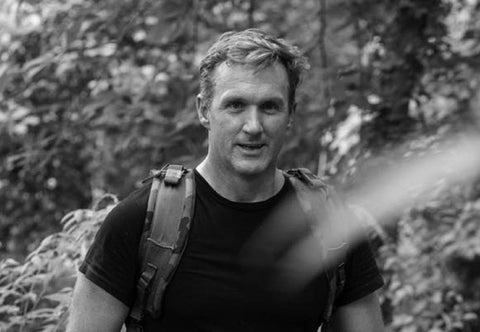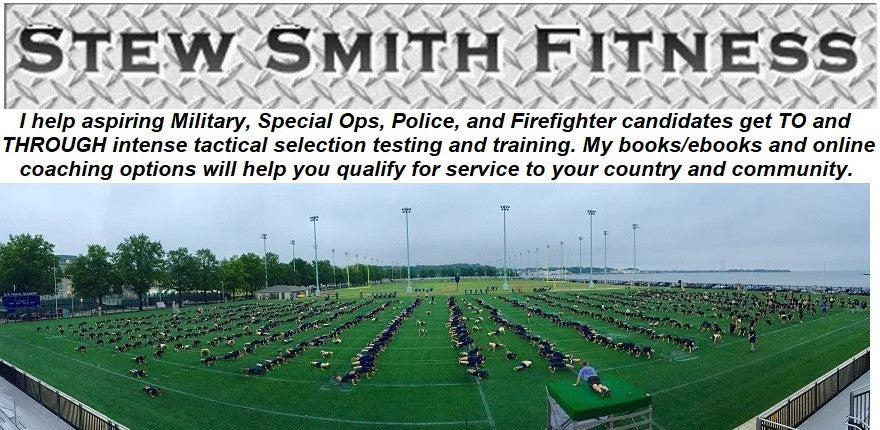But How Do You Define Longevity?

Sure we can find a definition for it that is oversimplified:
Longevity: The capability of surviving past the average age of death. See, this is way too simple and does not even crack the shell of what having longevity actually is. However, several synonyms do a much better job at starting the process to actually understand what longevity is: resilience, durability, endurance, persistence, survival, vitality, long-life, potency, continuation, and functional. And for the Tactical Population "OG still Operational."

It is one thing to live many years, but living with life in those later years requires a much greater understanding of exactly what recovery means. How can we not only become an OG (Old Guy) and still be functional / operational within a tactical career AND still be able to enjoy retirement well beyond those years of service? Not many people consider this inevitable outcome as we will all become older longer than we are younger if we are so fortunate. The thing is, this process of learning about recovery and actually doing it starts now when you are young. At first recovery means better performance on the short term mindset - BUT it continues to grow throughout the years and will later mean LONGEVITY for the long term mindset.
In a recent podcast with LtCol Nick Barringer (US Army) PhD, RDN in performance nutrition, we took on the topic of longevity. Though the focus was staying productive and operational as a tactical athlete within the tactical professions and beyond (military, spec ops, police, fire, EMT), in the end we summed up the hour long podcast as to build longevity, it requires a lifetime mastery of the many abilities to recover from the daily stresses in our lives.
You can watch the video on youtube or listen to the audio where you find audio podcasts (Apple podcasts, GooglePlay, Spotify, etc) - Look for the Tactical Fitness Report with Stew Smith
Are You a Master of Recovery?
Recovery = Smart Training Systems, Periodization, Rest, De-Stress, Mobility / Flexibility, Nutrition, and Sleep
Recovery: There is more to being well-rested and ready to go than a good night's sleep, but that is still our number 1 recovery tool. Sleep is that important for recovery for sure, but when you are training hard, you also have to train smart, add rest / mobility days, eat well, and relax and de-stress. In my opinion, recovery is represented well in the unscientific chart below:
Sleep, Rest, Relax 50%
Nutrition 40%
Ice, Heat, Stretching, Mobility 5%
Gear, Massage, other Services 5%

With sleep and nutrition alone, our body is capable of recovering from physical stress to near perfect in a relatively short period of time. Adding in some of the missing 10% options may have some positive effects on recovery and aiding in speed of recovery and isolating certain issues. BUT the absence or neglect of the BIG TWO (SLEEP / NUTRITION) recovery methods and your ability to recover is stunted to a point where the stresses of life (physical, mental, work/school, personal / relationships, emotional stress) can start to affect your performance and even become chronic.
In the video, I made an elementary comment of basically moving more and eating less. But to generalize America's overweight/obesity epidemic, we really do need to control portions (and eat more nutritious food). While it is not that simple, eating well (not just less food) is required to make this quip actually be effective: Move More, Eat Less (better), Sleep Better, Less Stress. All combined can be a simplifed equation to recovery and longevity. A simple way to eat less would be to eat your meal on a salad plate and your salad on the bigger regular meal plate.
De-Stress with An Attitude of Gratitude
Attitude and the ability to smile and enjoy life is key to longevity as well. An attitude of gratitude is much easier said than done, but here are five ways to help you de-stress and perhaps have a better attitude to actually enjoy aspects of your life that you might have not been noticing. Find something in your day that makes you happy - even if you have to think about it. Hobbies are great. My hobby is taking pictures - some are even used in this article.
Stress and the Body Infographic from Heart Math

Unfortunately, of the many ways to die young, chronic stress is usually at the center and lined of nearly all of them (cancer, diabetes, heart disease / attack / stroke). Stress is associated with elevated inflammation, a rush of hormonal responses that are designed to keep us alive in the fight-or-flight mode. Not being able to metabolize these stress hormones on a daily basis is the root of chronic stress lined to lack of recovery.
A complete list of the elements of recovery to master to help you with this daily battle:
Sleep (get 7-8 hours)
Nutrition (eat well)
Hydration (Drink more water)
Exercise (move more with purpose)
But Also Be Still (breathe and relax) - Focus on Learning HOW to Breathe (box breathing is a good start) - Learning HOW to breathe to slow down your nervous system. Simply lengthen inhale and exhale with a short pause in between both in through the nose / out through the mouth. Take a few minutes and try box breathing for starters (4 secs IN, 4 sec hold, 4 sec OUT, 4 sec hold).
Flexibility / Mobility - Do NOT skip mobility day
Positive Outlook / Attitude of Gratitude (be happy)
Out of all of the above single options to help you recover, they ALL have at some point in my life been life changing once I got it correctly. Whether it was for a day's energy levels and event performance or it was long term pain reduction and injury recovery, mastery of the above is the KEY TO LONGEVITY.
All of the above habits will help you recover, but dropping some bad habits will too:
Smoking, Drinking Alcohol, Doing Drugs, and Too Much Caffeine
All of the above are habits that are difficult to break due to the addictiveness of these substances. There are things in that list that can be done with moderation (alcohol / caffeine), but tobacco products and narcotics are NOT something that will be helpful in a quest for longevity. These absolutely ruin your ability to recover - mainly sleep well - but some are just deadly and horrible for your health period. Sorry to be the VICE cop but it is true. Though you may still live a long life with a lifetime of bad habits eventually those final years will be the result of an accumulation of bad habits.
Know the Signs When Stress / Over-Training Start to Show
Typical Stress Symptoms are not that diffierent from physically over-training symptoms. Hormonally speaking they are the same and the same methods of recovery apply to all forms of stress:

Save this picture and give it to someone who cares about you as they will see these symptoms before you will. Though fitness is great for reducing stress, it is also a potential for greater stress if you are not smart about it. Typically, over training is a neglect of the recovery methods (sleep / nutrition primarily).
Over the years, I have written and made podcasts on the many ways to actively pursue recovery. The complete list of recovery content that further explains better nutrition, hydration, sleep protocols, training, mobility, de-stressing, and attitude / happiness are complex to master all at once. This mastery may actually take decades. But with each year, if you have the mindset of "actively pursuing recovery" and improve on ALL THE ABOVE one at a time, you may develop all the necessary tools and be a Master of Recovery or a Lord of Longevity.
Related Articles and Video Podcasts on ALL Elements of Recovery

Where to Find More Home Gym Workouts?
This is just a few of the many benefits people without gym access gain when it comes to using calisthenics and seeing performance improvements. Why risk stop training because you don’t have a gym when you can avoid wasted effort and money? Take the time to educate yourself on the proper methods to adding calisthenics into your training program. In the future, when you start lifting again, you can always add it to your training again whenever you feel like you need a cycle of lighter weights and more cardio. We do this every Spring / Summer using my Seasonal Tactical Fitness Periodization System.
Check out the Stew Smith Fitness Store for more information on what we have available.
General Fitness Programming







and many more...
More for the Athlete Over 40 (or not)
Part 1 - Foundation Building (12 weeks) (book / ebook)
Part 2 - Taking it to the Next Level (12 weeks) (book / ebook)
Part 3 - Ready to Compete (12 weeks) (book / ebook)
Part 4 – Tactical Fitness For the Athlete Over 40 (16 weeks) (book / ebook)
Other Tactical Fitness Programming
Tactical Fitness Series - Tactical Fitness, Tactical Strength, and Tactical Mobility is an ALL encompassing program that focuses on lifting, calisthenics, run, ruck, swim, speed, agility, and flexibility / mobility. Many people with manual labor jobs as well as those focusing on USMC (OCS, RECON, MarSOC) Army Ranger / SF, Air Force Special Warfare, SWAT / Federal Law Enforcement, and Navy Special Warfare have done very well focusing on the Tactical Fitness Series and developing themselves into an all-round Tactical Athlete.
Personalized Training Programs
There are many more options as well as personalized training programs member's only program and the new :
Try Our Stew Smith Fitness Members Only Club - #1 Best Selling Tactical Fitness Programs

Questions? Just email me at Stew@StewSmith.com
At StewSmith.com - List of Products and Services
- FREE Articles
- Podcasts and Swimming Videos at Youtube.com page
- eBooks
- Books and eBooks in PRINT
- Stew Smith Fitness Club membership site
- Online Coaching
Stew Smith




Stew is one of the best fitness minds in this business in the world. I have followed his advice for 30 years. I wish I had followed it closer.